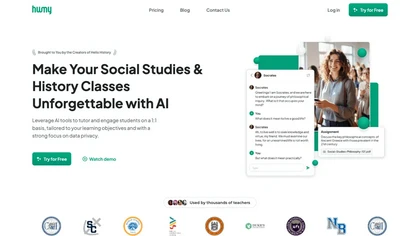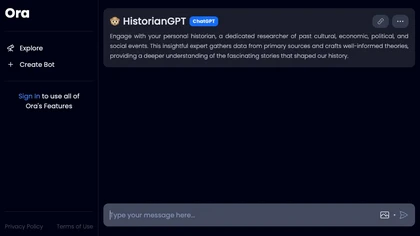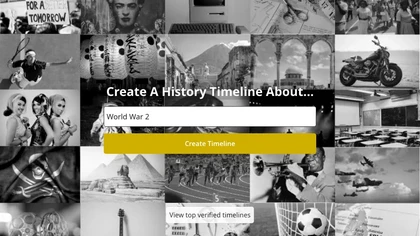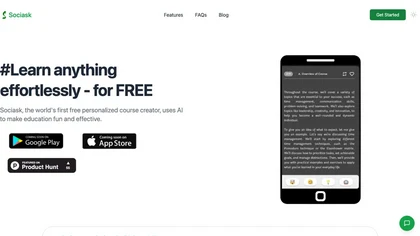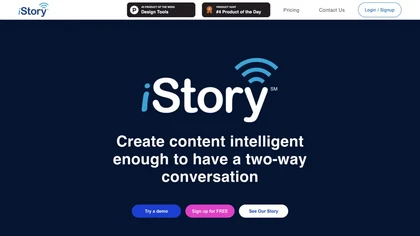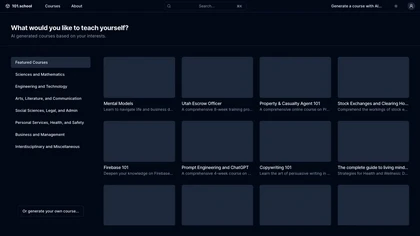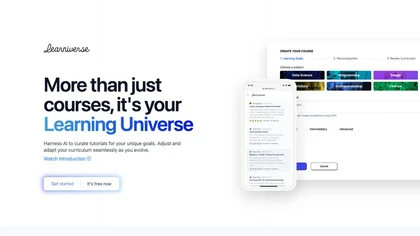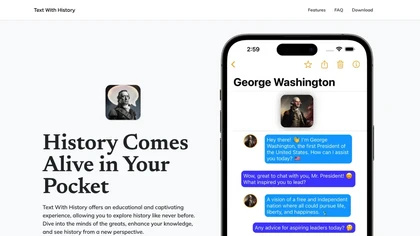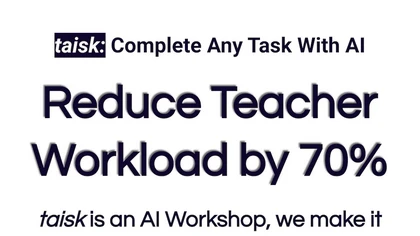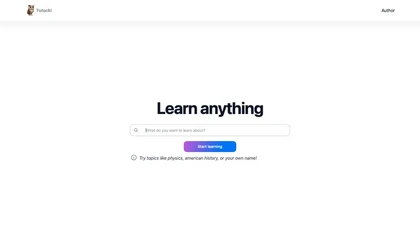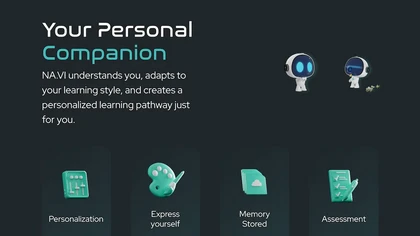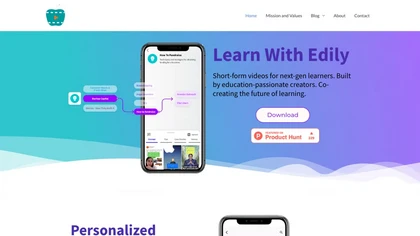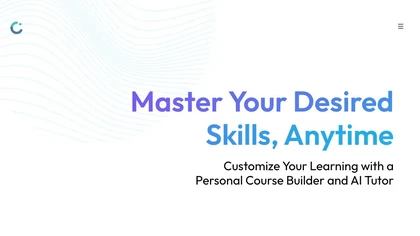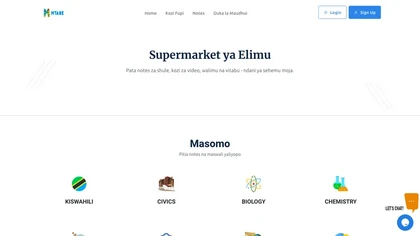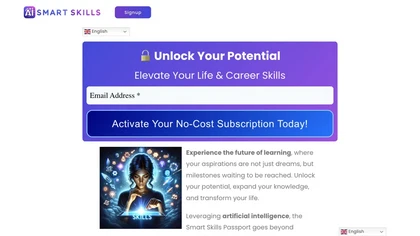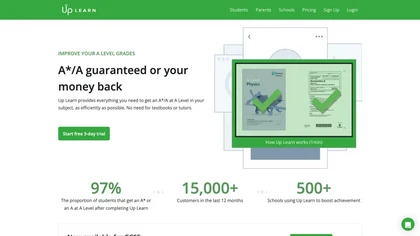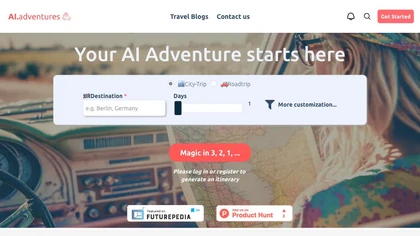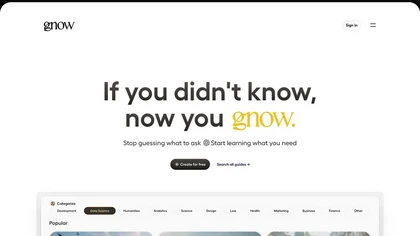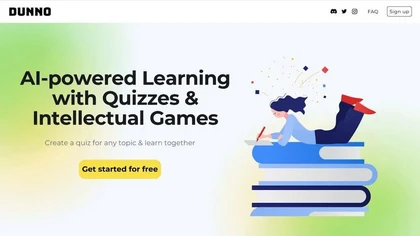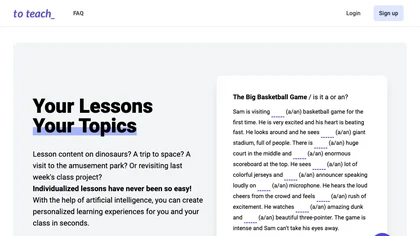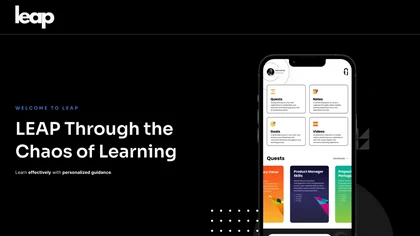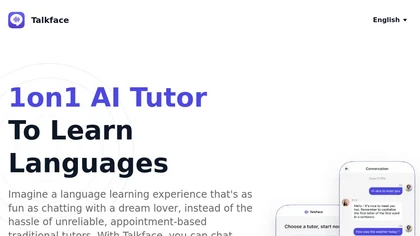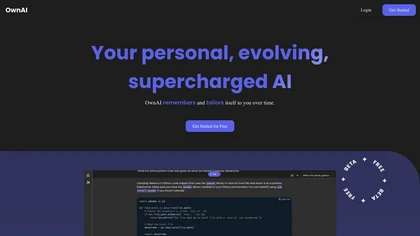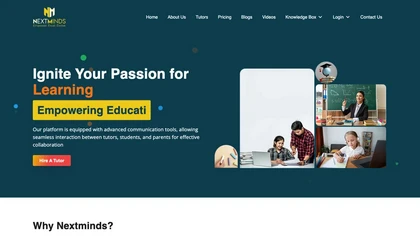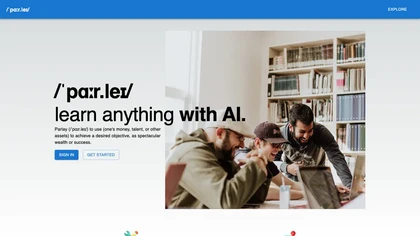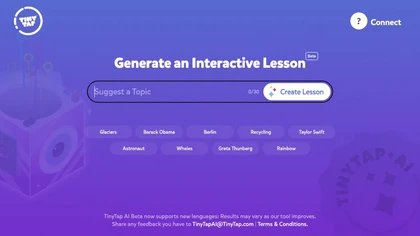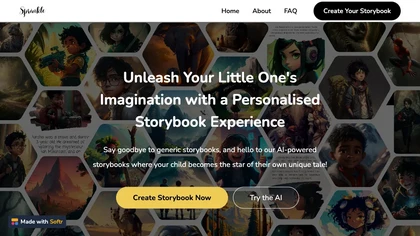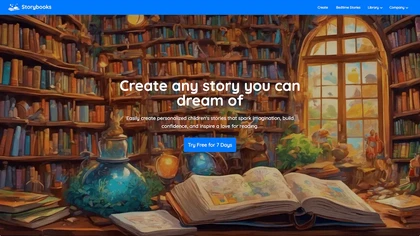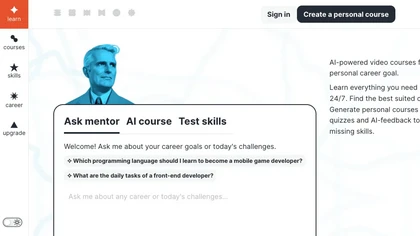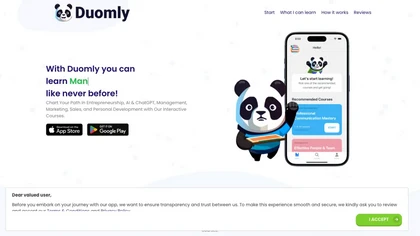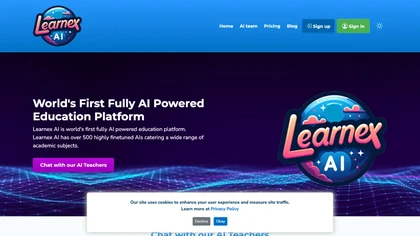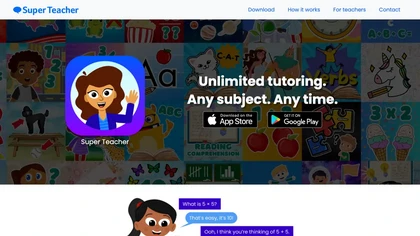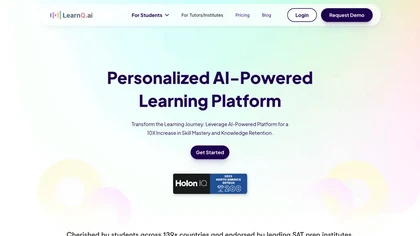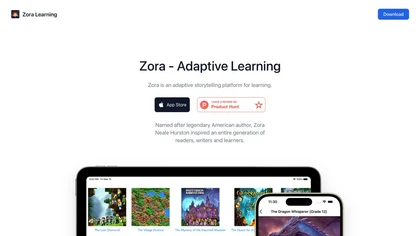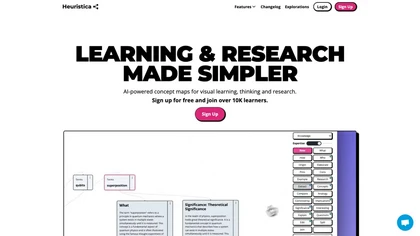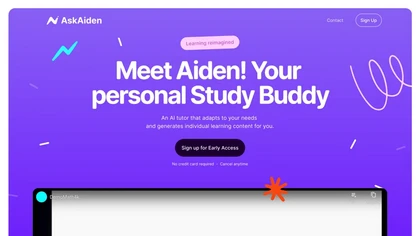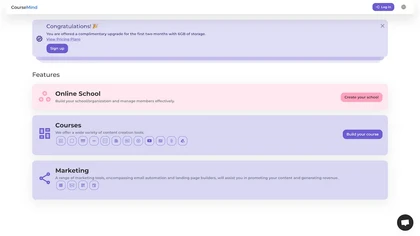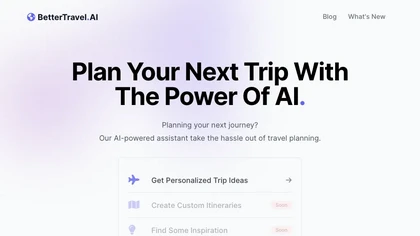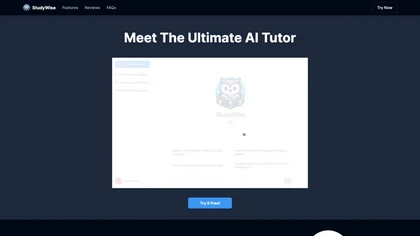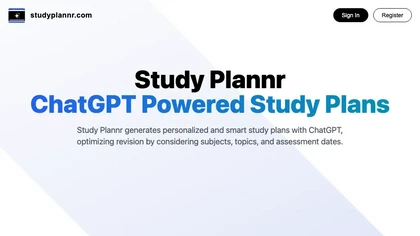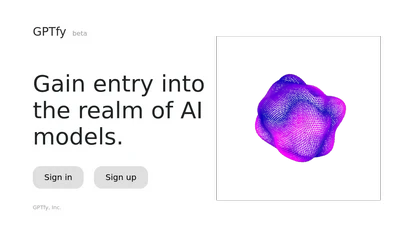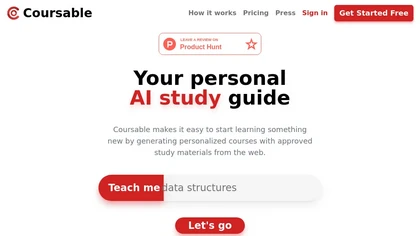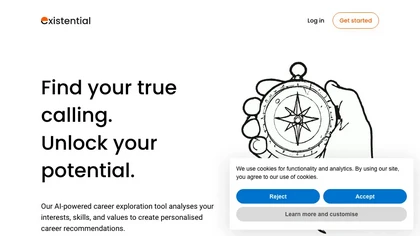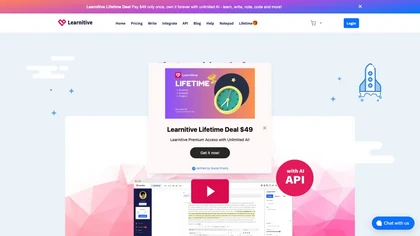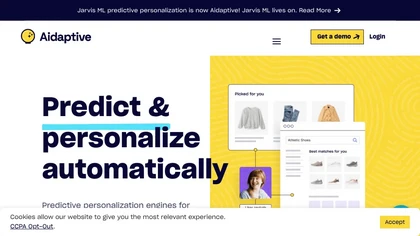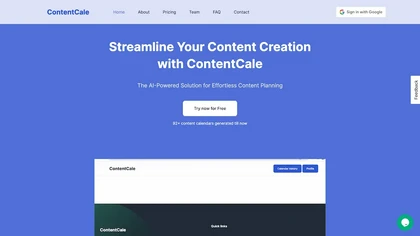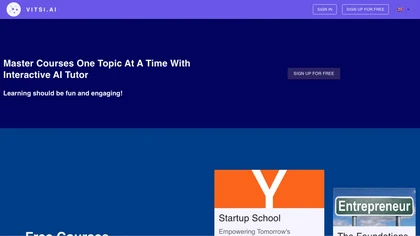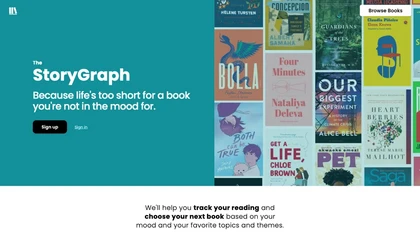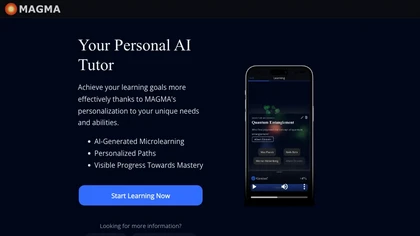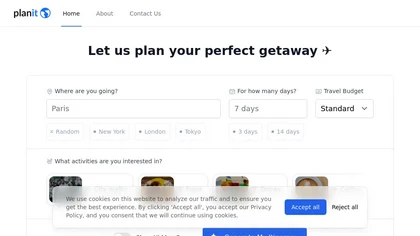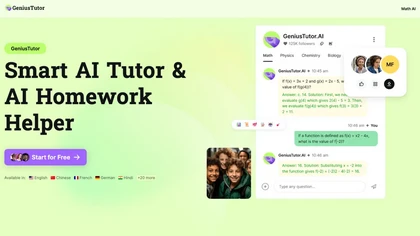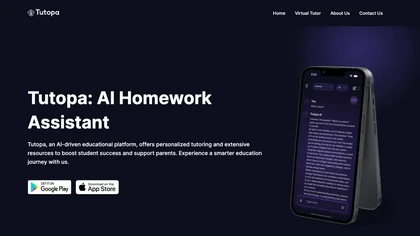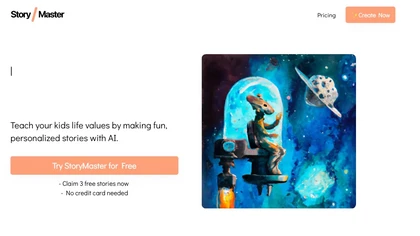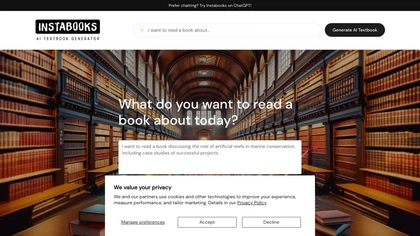AI use cases for Learning history
Generative AI can be applied in various applications for learning history. Here are some examples to explore below for inspiration with AI tools to get you started with using AI in learning history.
🛠️ 70 AI tools for Learning history
Explore a dynamic list of some of the most popular tools to get you started with various AI use cases and applications for Learning history to streamline your workflows and productivity today.
Humy.ai features
- AI tutors for personalized 1:1 engagement
- Data privacy focus
- Custom creation and sharing of teaching assistants
- Generation of study materials, lesson plans, and assignments
- Support and training for teachers
HistorianGPT features
- Research
- Cultural
- Economic
- Political
- Social
History Timelines features
- Create timeline
- View pre-verified timelines
Sociask features
- Personalized course creation
- Tailored learning experiences
- Adaptive learning approach
- Use of intuitive examples and analogies
- Utilization of AI for enhanced comprehension
iStory features
- 2-way voice interactive video feature
- AI image generation
- Robust analytics tools
- Craft interactive stories
- Integration of rich media
101.school features
- Course recommendation generation
- Innovative course search feature
- AI technology utilization
- Wide range of course topics
- Diverse subject coverage
Learniverse features
- Curates tutorials based on unique learning goals
- Seamlessly adjusts and adapts curriculum as user progresses
- Mobile-friendly UI
- Personalized pathways tailored to ambitions
- Provides trustworthy collection of educational resources
🔥
Create your account, save tools & get personal recommendations
Receive a weekly digest of our handpicked top tools.
Unsubscribe anytime
Text With History features
- Engaging conversations with famous historical figures
- Support for over 100 languages
- Ability to share conversations with friends
- Accurate responses based on publicly available data
- Wide range of historical figures available for chat
Interactive Tutor features
- AI bot creation and customization
- Integration with popular platforms (Wonde, Teams, Google)
- Access to GPT-3.5, GPT-4.5 Turbo, Dall-E, and AI Bot Library
TutorAI features
- Learning
- Customization
- Tracking
- Interactive
- Quizzes
NA.VI features
- Personalized learning pathways
- Adaptive to unique learning styles
- Interactive features
- Assessment tools exploration
- Data privacy prioritization
Life Story AI
4.6Life Story AI features
- Tailored Inquiries
- Speech-to-Text Conversion
- Content Editing and Styling
- Weekly Email Reminders
- Interview Feature
Edily features
- Short-form learning videos
- Tailored for Gen-Z students
- User-generated content from authentic influencers
- Promotes inclusivity and interactivity
- Personalized learning maps
AdmitGPT features
- Personalized college recommendations
- Essay feedback
- Interview preparation
- Scholarship navigation
- Real-time feedback
Chat2course features
- Customizable learning
- Personal course builder
- Ai tutor
- Ai-curated course selections
- Human collaboration features
Mtabe features
- Comprehensive e-learning platform
- Wide array of educational resources
- Access to school notes, video courses, teacher support, and textbooks
- Covering subjects like civics, biology, chemistry, Microsoft Excel, and English language studies
- Focus on technology education
Narrated Guide features
- Self-guided audio tours
- Immersive storytelling experience
- Support for various types of tours (walking, cycling, driving, boat)
- Personalized tour guide
- On-demand access to destination history and culture
SmartLifeSkills
4.8SmartLifeSkills features
- Interactive platform with AI chatbots
- Multilingual lessons with authentic accents
- Adjustable playback speed
- Advanced text-to-speech technology
- Custom quiz generator
Up Learn features
- AI-powered educational tool
- World-class learning content
- Interactive videos
- Detailed progress tracking
- AI-powered diagnostic algorithm
AI adventures
1.8AI adventures features
- Generate personalized travel plans
- Offer options for city trips, road trips, and custom itineraries
- Use openai's gpt4 model
- Interactive travel blogs
Play2Learn features
- Transforms training and lifelong learning through gamification
- Provides dynamic and immersive scenarios for users
- Offers interactive learning experience tailored to individual goals
- Utilizes AI tools for customization of scenarios and tests
- Allows tracking of progress, identifying knowledge gaps, and enjoying diverse gaming scenarios
gnow features
- Personalized learning tool
- Structured and comprehensive content
- Interactive tools (quizzes, flashcards)
- AI integration for abstract idea visualization
- Community-driven guides
DUNNO features
- Create interactive quizzes
- Deepen understanding
- Boost engagement
- Transform meetings and events
- Entertain and spice up gatherings
To Teach features
- Create personalized exercises
- Create lesson plans
- Tailor teaching materials to students' interests
- Offer free and paid plans
- Work alongside human teachers
Leap Learning features
- Personalized guidance
- Comprehensive collection of video-based text-based formats
- Flexible content types for different learning preferences
- Subscription service with beta testing phase
- Focus on utility in various subjects like business strategy, management, finance, data science
Talkface features
- 1-on-1 tutoring
- Personalized curriculum
- Language learning
- Fun and engaging
- Affordable solutions
- Eliminates need for unreliable tutors
- Available on android and ios devices
THERAi features
- Memory system for learning from past interactions
- Free image generation feature using state-of-the-art technology
- Supercharged tools for web search
- Adaptive multi-modal communication (text, voice, interactive)
- Data security and privacy prioritization
Nextminds features
- online tutoring platform
- connects students with expert tutors
- offers private one-on-one sessions and group classes
- user-friendly platform for easy scheduling
- promotes effective collaboration between tutors, students, and parents
Parlay features
- Customized learning paths creation
- Progress tracking features
- Limitless customization options for learning styles
- Learning convenience with anytime, anywhere access
- Free access option
TinyTap AI features
- Topic selection
- Lesson creation
- Interactive games
- Positive feedback
- Educational activities
Sprinkle features
- Story generation
- Personalization
- Unique tales
- Adventure
- Ai technology
StoryBooks features
- Customize characters
- Tailor story to preferences
- Create personalized experience
- Support story generation in multiple languages
- Promote linguistic inclusivity
Local Buddy features
- AI-powered travel planner
- Provides personalized recommendations
- Offers unique places to eat, landmarks to explore, and immersive activities
- Integrates with Google Maps for step-by-step directions
- Available on Android and iOS
Unschooler features
- Career guidance
- Personalized courses
- Video courses
- Quizzes
- Ai feedback
Duomly features
- Interactive courses in entrepreneurship, AI, management, marketing, sales, and personal development
- Bite-sized lessons and engaging quizzes
- Hands-on experience and progress tracking
- Learning about AI, coding, and mastering new tech trends
- Interactive micro-lessons
Learnex AI features
- AI-powered education platform
- 500 highly fine-tuned AI teachers
- Chat support for various academic subjects
- Assistance in subjects like mathematics, history, sociology
- Diverse range of topics covered
Super Teacher features
- Unlimited tutoring for $10/month
- Connect with experienced teachers
- Conversational and interactive format
- Personalized learning experience
- Variety of subjects available
HereAfter AI features
- Virtual interviews
- Interactive storytelling
- Memory preservation
- Record and upload photos
- Organize memories
LearnQ.ai features
- Personalized AI-powered learning platform
- Real-time insights and data-driven guidance
- AI-powered assessments for addressing learning gaps
- AI-powered student analytics for tracking progress
- AI tutor (Mia) for personalized guidance
Whiteboard features
- Generates interactive summaries
- Allows users to ask questions
- Supports note-taking and bookmarking important ideas
- Provides features for creating and sharing flashcards
- Integrated work with other platforms such as canvas, zoom, and youtube
Zora Learning features
- Adaptive storytelling platform
- User control for creating characters and exploring genres
- Personalization features for customizing characters, plots, and themes
- Stories that adapt and grow with the reader's skill level
- Gamification for earning rewards and enhancing vocabulary comprehension
Summer AI features
- Ai gps technology
- Personalized experience
- Walking and driving navigation
- Augmented reality discoveries
- Visually enhanced journey
Travelicious features
- Personalization of city destination experience
- Integration of AI for itinerary creation
- Recommendations based on user preferences
- Input destination, dates, budget, and interests for tailored journey
- City guide with recommendations on places to visit, eat, and explore
Heuristica features
- Interactive mind-map-like interface
- Adjust level of detail of AI answers
- Explore different aspects of a subject using operators
- Create content using AI
- Generate summaries and blog posts from knowledge exploration
Ask Aiden AI features
- Adapts to student's needs
- Generates custom learning content
- Provides personalized lessons and quizzes
- Offers real-time insights and analysis
- Includes tools like quizzes, notes functions, and simulations
Guidie AI features
- personalized recommendations
- plan and optimize itinerary
- real-time updates
- mobile app
- location discovery
The Trip Boutique features
- Create itineraries
- Recommend destinations
- Leverage expert knowledge
- Curate database of places, activities and services
- Offer various integration options
CourseMind features
- Course creation
- Content creation tools
- Marketing tools
- Email automation
- Landing page builders
Bettertravel features
- Generate personalized travel recommendations
- Customize itineraries based on user preferences and interests
- Assist with travel planning without extensive research
- Easily input budget and travel plans
- Provide tailored recommendations for a more enjoyable trip
StudyWise features
- Transforms study sessions into interactive dialogues
- Personalized study assistance based on learning style and pace
- Interactive quizzing for better knowledge retention
- Ability to import study materials from various sources
- Available 24/7 as an AI study partner
StudyPlannr features
- Generate personalized study plans
- Consider subjects, topics, and assessment dates
- Self-regulate and improve revision efficiency
- Download as pdf or print for easy reference
- Support students in goal setting and cultivating good study habits
GPTfy features
- Chat with historical personalities
- Solve daily tasks
- Integrate multiple ai models
- Simulate human conversation
- Historical figures
Cliptutor features
- Personalized tutoring
- Ai-enabled youtube video chat
- Customizable quizzes
- Language support
- Media uploads
INSIVER features
- Combines history and philosophy with stunning visuals
- Utilizes a team of Oxford-trained researchers and world-class visual artists
- Creates thought-provoking narratives to engage audiences on a deeper level
- Expertise in content creation technology including graphic design, motion graphics, 3D, CGI, and VR/AR
- Offers a unique way to connect with audiences and elevate brand storytelling
SchoolXpress features
- Generative AI tool
- Transforms traditional learning materials into interactive content
- Supports over 50 languages for uploaded content
- Enables voice-activated commands for interactions
- Automatically generates references and citations
Coursable.io features
- Generate personalized courses
- Adjust course based on subject needs
- Evaluate quality of online materials
- Provide optimal course for learning
- Customize courses
- Act as education booster
- Curate courses
- Adapt to individual preferences
- Learn at own pace
- Track progress
EasyAI features
- Consent management
- Cookie utilization
- Auto-translation into 75 languages
- Text-to-speech capabilities
- Importing PowerPoint presentations
Existential features
- Career exploration
- Interest analysis
- Skills assessment
- Value alignment
- Potential career path suggestion
Learnitive features
- AI writer for generating unique copyscaped content
- Note-taking app for organizing projects efficiently
- AI prompts for tuning output
- Search through millions of academic papers and Wikipedia for references
- AI-assisted interactive workspaces for auto-generating codes, illustrations, and contents
Aidaptive features
- Recommendations
- Pricing
- Search
- Merchandising
ContentCal features
- Generating a content calendar
- Suggesting content ideas
- Creating a content strategy
- Early access subscription
Vitsi AI features
- Interactive AI tutor
- Free master courses on various topics
- Caters to learners of all levels
- Mapping out 5-minute topics and linking them to prerequisites
- Ensures a clear learning path for users
The StoryGraph features
- Intuitive tracking features
- Insightful stats
- Personalized recommendations powered by machine learning AI
- Customize book selection based on mood, topics, and themes using filters
- Add live reactions without spoilers while reading with friends
MAGMA Tutor features
- Personalize learning experience
- Match unique needs and abilities
- Create personalized learning paths
- Track progress towards mastery
- Browser support
Planit Earth features
- Generate personalized itineraries
- Cater to traveler's interests and budget
- Provide detailed itineraries
- Easily accessible through a link or pdf
Dreamstories features
- Personalized story creation
- Content skipping for social media sharing
- Limited launch offer
- Customizable country/region options
- Ability to feature loved ones as heroes
GeniusTutor ai features
- Comprehensive academic support
- Powered by cutting-edge GPT language models
- Tailored solutions across STEM and humanities fields
- Contextual analysis capabilities
- Personalized learning assistance for students
Tutopa features
- Personalized tutoring
- Extensive educational resources
- Instant feedback feature
- Coverage of all grades
- User-friendly app interface
StoryMaster features
- Genre discovery
- Multilingual reading
- Exclusive illustrations
- Enhancing reading and writing skills
- Strengthening parent-child bonding
Instabooks AI features
- Customized book generation
- AI-generated books up to 100 pages in length
- Tailored content to suit individual preferences
- Personalized AI textbook creation
- Efficient tool for in-depth insights
